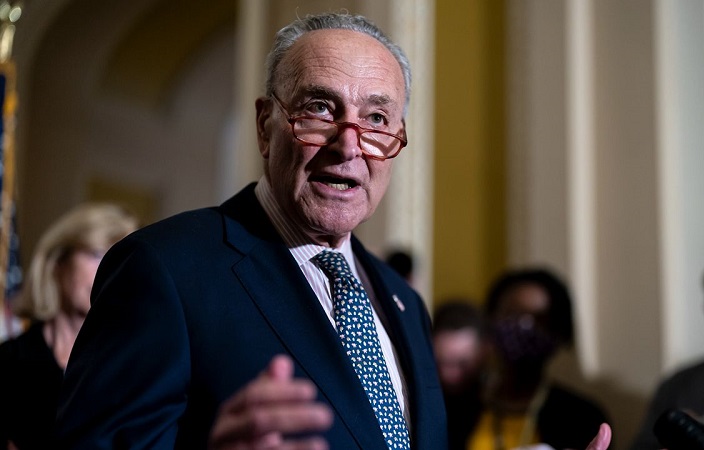Top United States lawmaker Chuck Schumer expected to visit India
Democrat Senator Schumer's office is eyeing his travel to India as early as next week and the top lawmaker will be visiting multiple countries. Read further on Dynamite News

Washington [US]: US Senate Majority Leader Chuck Schumer is expected to visit India with a high-profile delegation of Senate Democrats for meetings with the Indian leadership. The details of his visit are being worked out, sources familiar with the deliberations told ANI.
An official said Democrat Senator Schumer's office is eyeing his travel to India as early as next week and the top lawmaker will be visiting multiple countries. The Senator's trip to India is not currently on Schumer's public itinerary and comes at a time when US-India relations are at a high point. Schumer's office didn't respond to ANI's request for a comment.
"This high-profile visit will spread across several countries including India. Schumer and the delegation are expected to stay more than a day or two and will also visit other cities apart from New Delhi," a senior official told ANI. Apart from the political engagements, Schumer is also expected to meet with some Indian business leaders.
"This visit is a personal visit but it certainly will accelerate the steady upward momentum between the two democracies using strategic partnership, defence, trade and diaspora," the official further added.
Earlier, ANI had reported on the US Department of State is looking at the first week of March for a possible visit by Secretary of State Antony Blinken and meetings in New Delhi, which would be a run-up to US President Joe Biden's meeting with leaders of the Quadrilateral Security Dialogue, commonly known as the Quad.
Also Read |
India, US assess progress made in bilateral defence cooperation
Apart from this US Commerce Secretary Gina Raimondo is scheduled to travel to India in March to co-chair the US-India CEO Forum and US-India Commercial Dialogue meetings with her Indian counterpart Commerce and Industry Minister Piyush Goyal.
On January 31, National Security Advisors and other agency heads from the United States and India met in Washington, DC for the inaugural meeting of the initiative on Critical and Emerging Technology, which allows the US to partner with a country looking to compete with China's technological advances.
On Tuesday, the White House announced that Air India has agreed to a historic purchase of airplanes from Boeing. A phone call between US President Joe Biden with PM Narendra Modi took place following the "landmark announcement."
According to a statement by the PMO, the two leaders expressed satisfaction at the deepening of the India-US. Comprehensive Global Strategic Partnership, which has resulted in robust growth in all domains. They also expressed a keen desire to strengthen bilateral cooperation in space, semi-conductors, supply chains and defence co-production.
PM Modi invited Boeing and other US companies to make use of the opportunities arising due to the expanding civil aviation sector in India.
Also Read |
Google disables RCS ads in India due to flood of spam from businesses
On Wednesday the US said that the commercial plane deal between Air India and Boeing is an opportunity to deepen an already profoundly intertwined relationship between India and the United States.
Meanwhile, National Security Advisor Ajit Doval's recently wrapped up a visit to the US during which India and US launched a program to enhance their strategic partnership. The two sides announced a set of programs whose aim is to increase the depth and scope of bilateral cooperation in cutting-edge technology, including in the defence sector.
Delegations led by Doval and his American counterpart, Jake Sullivan held a meeting in Washington for the inaugural dialogue of the Initiative on Critical and Emerging Technologies (iCET).
Doval also held a meeting with US Deputy Secretary of Defence Kathleen Hicks and discussed priorities for the US-India bilateral defence partnership included strengthening policy and operational coordination in the Indo-Pacific region and increasing defence industrial cooperation between the two nations. (ANI)
 Dynamite News
Dynamite News 